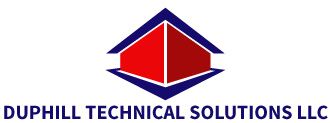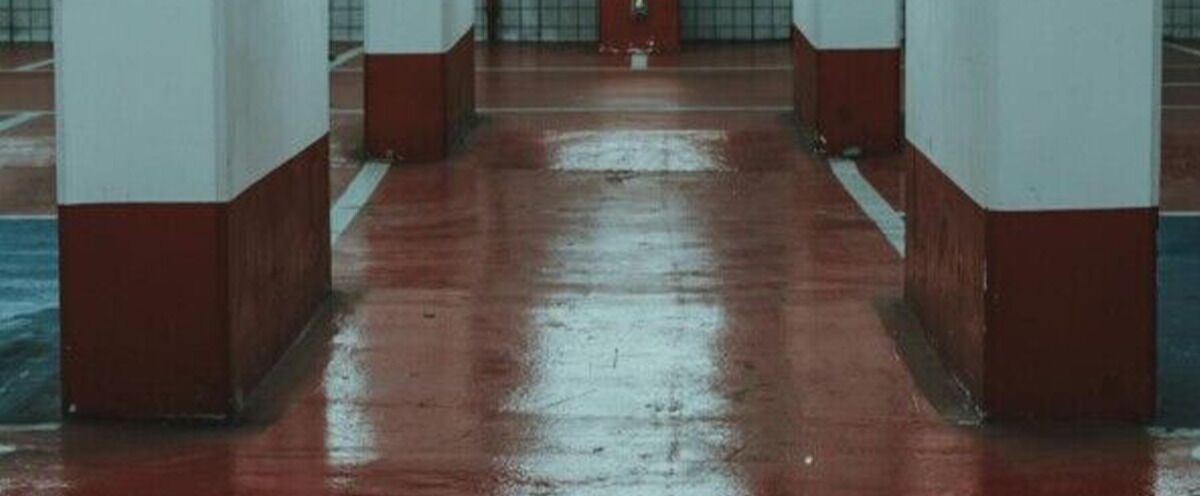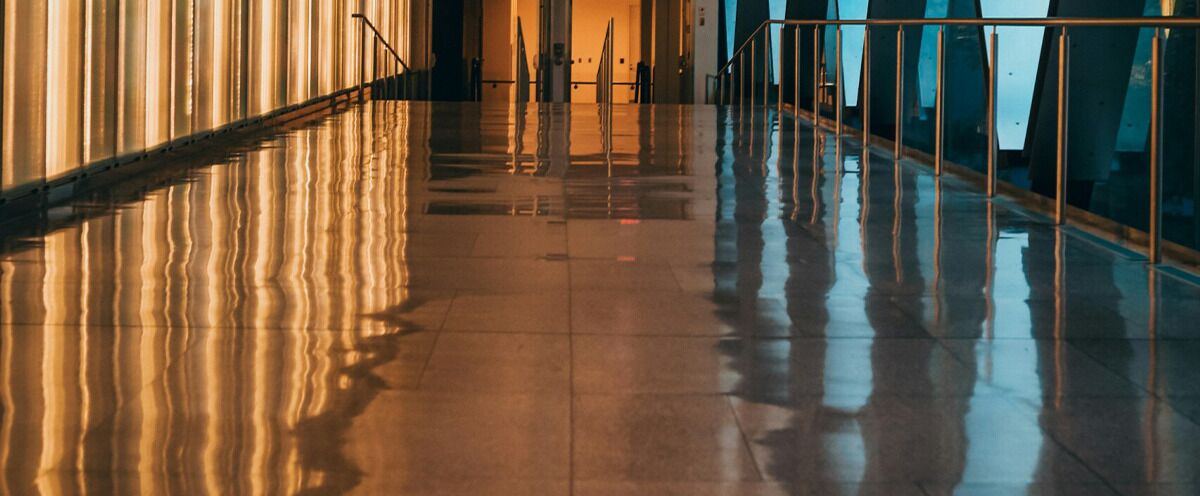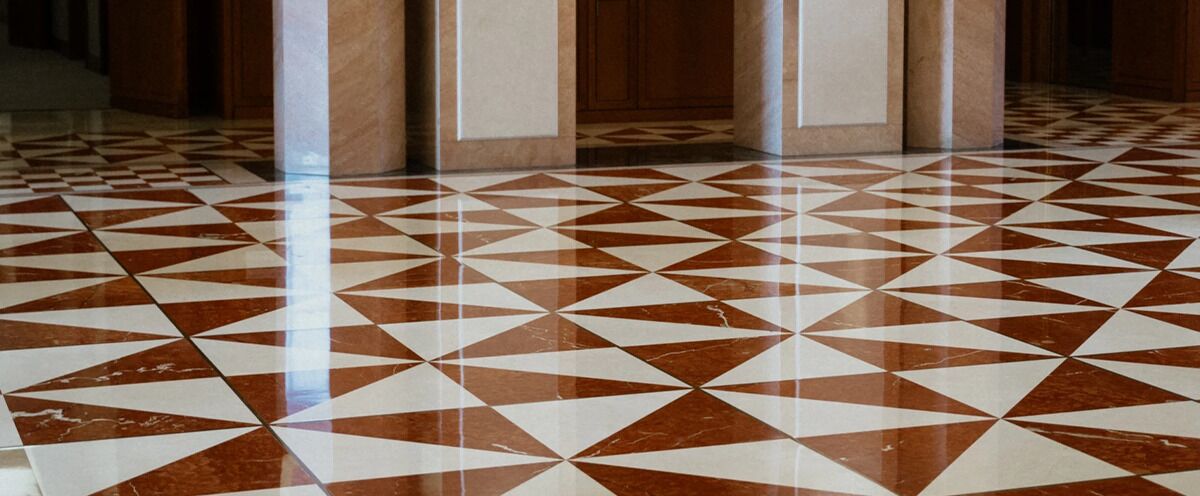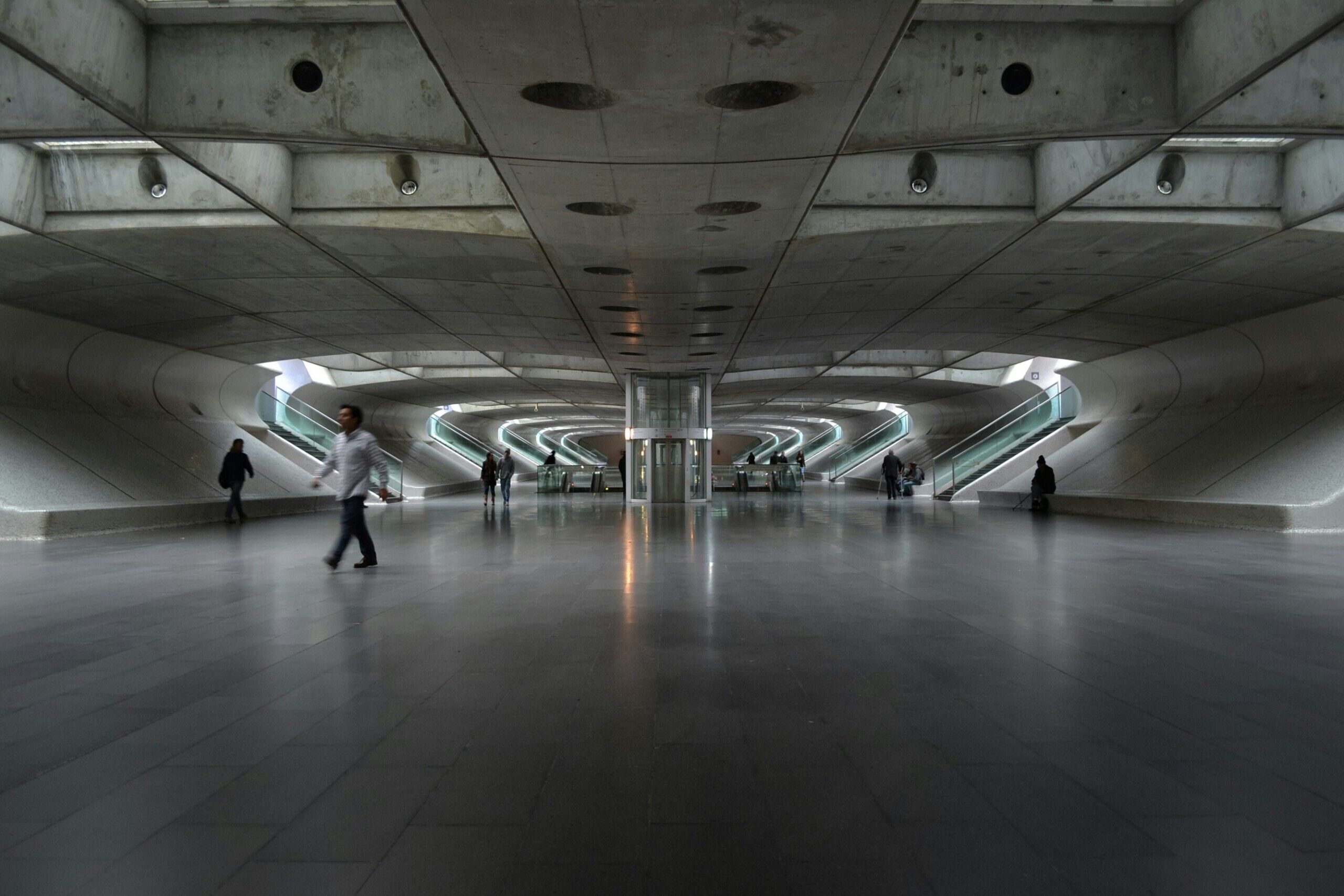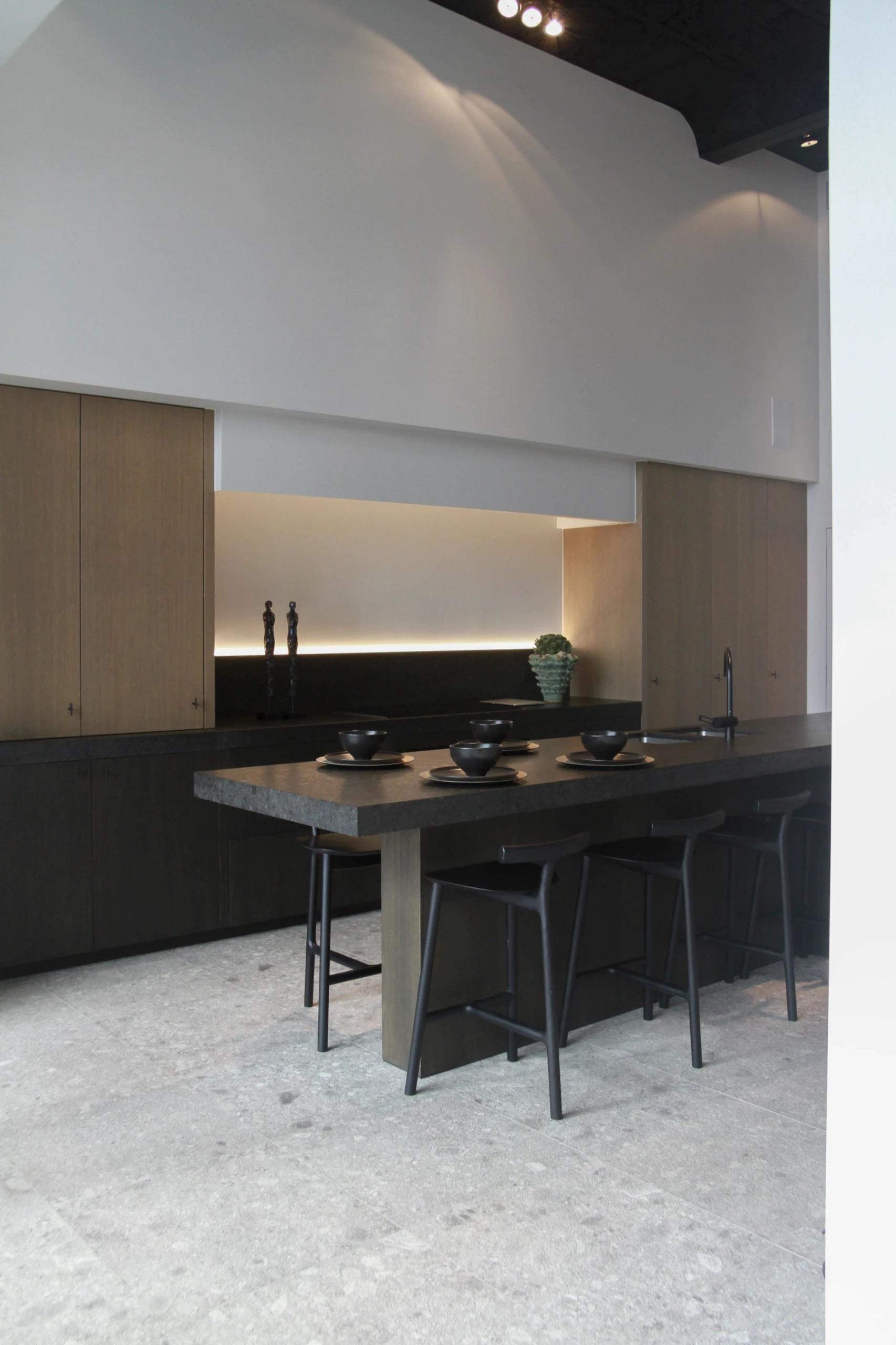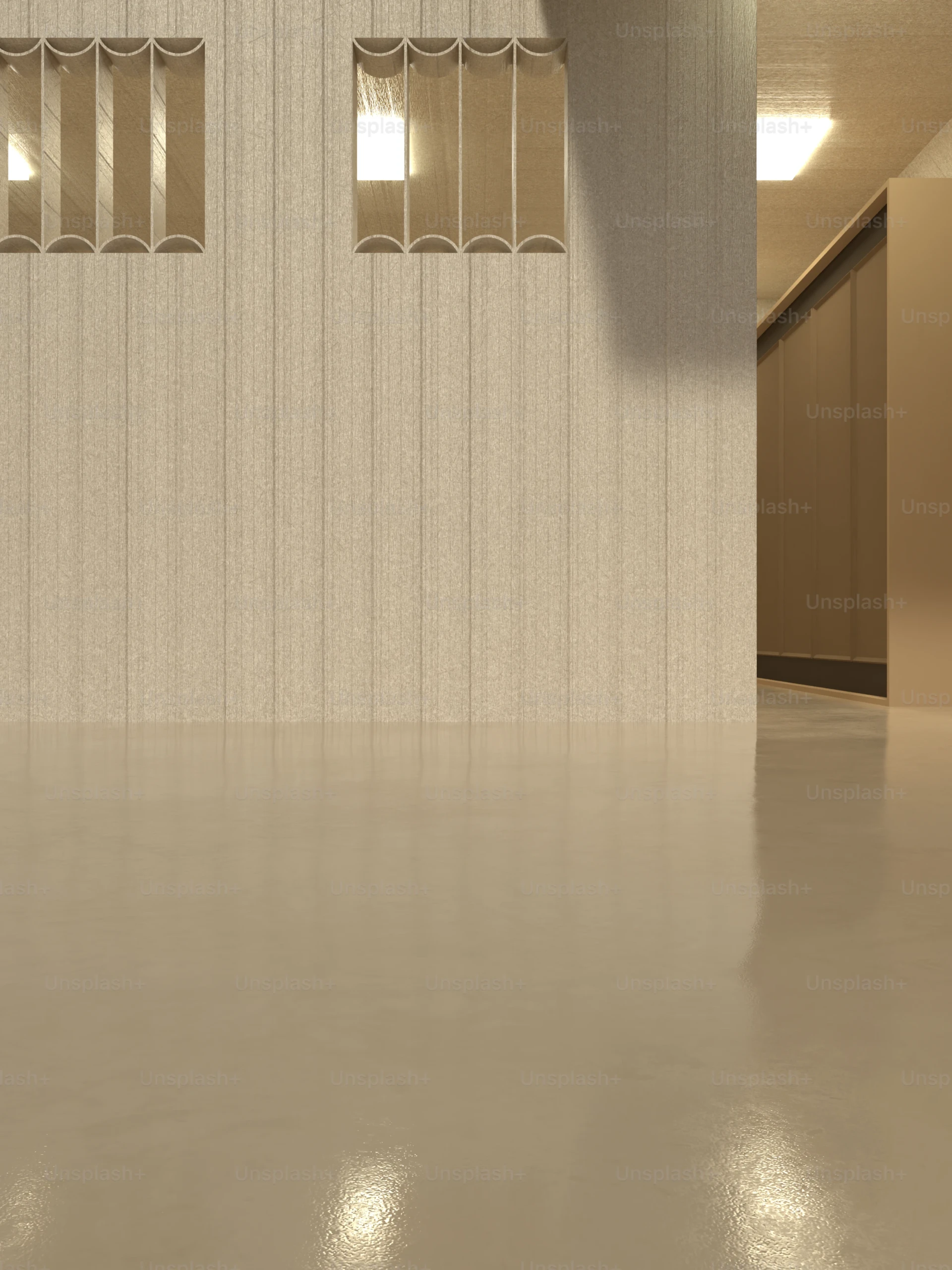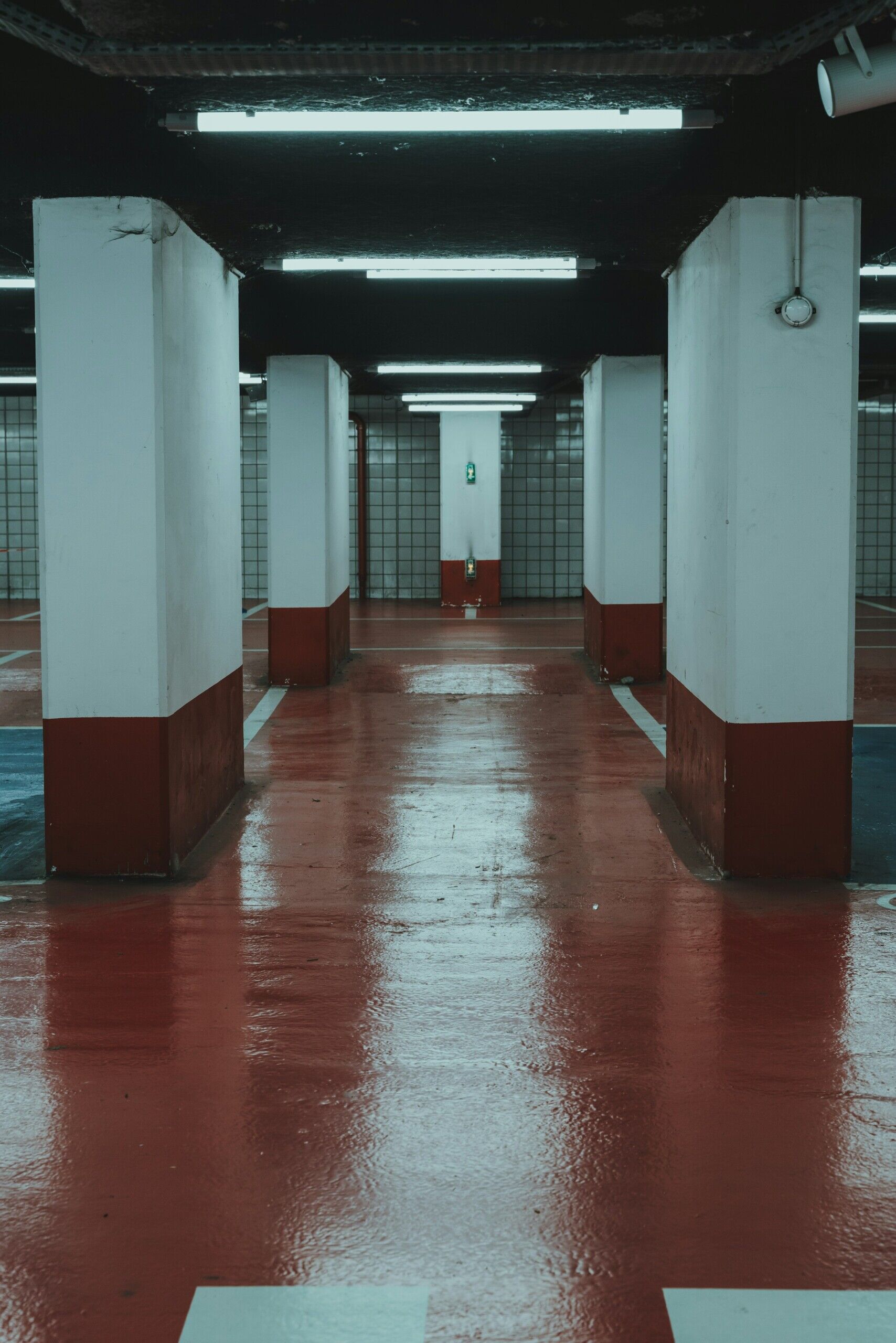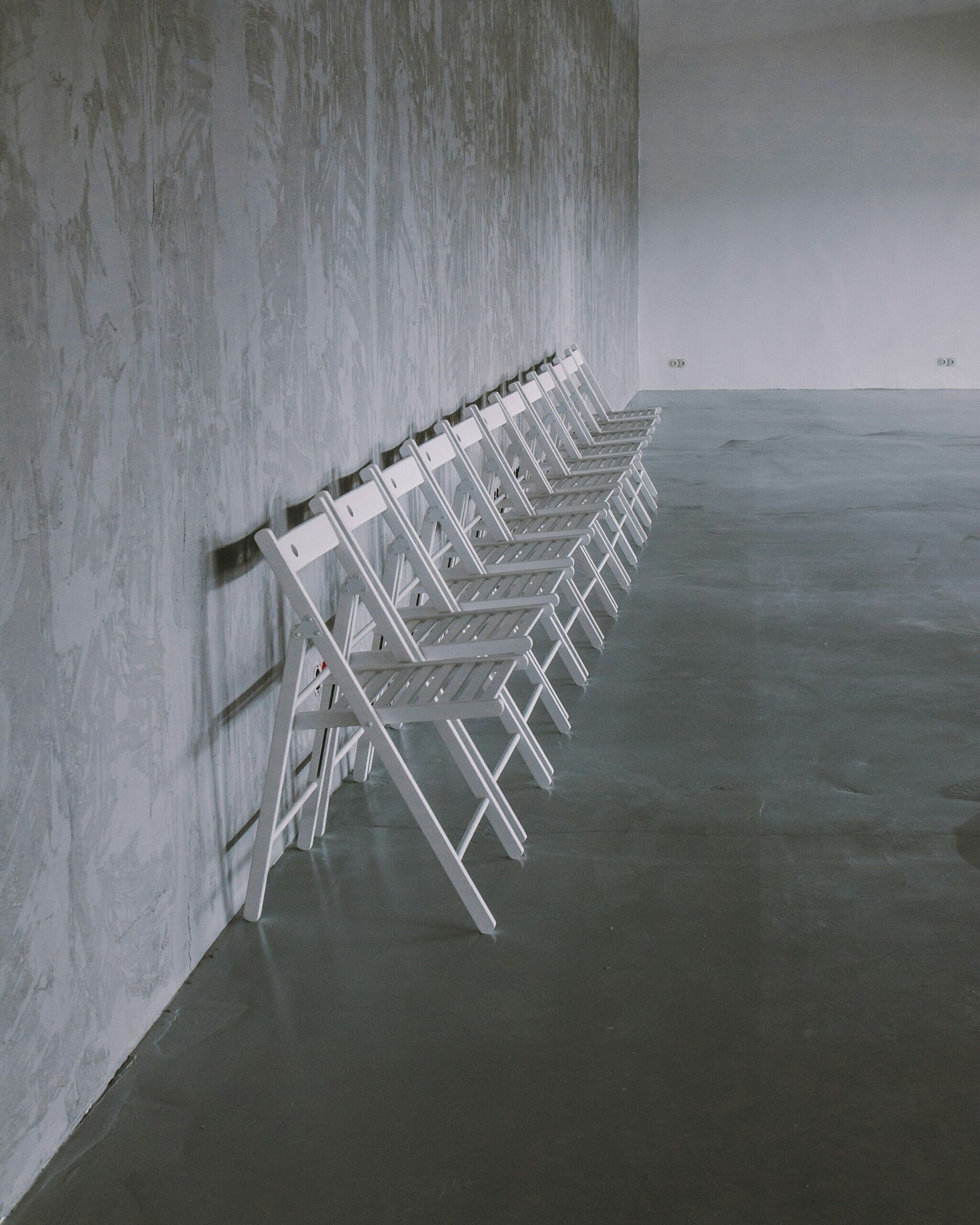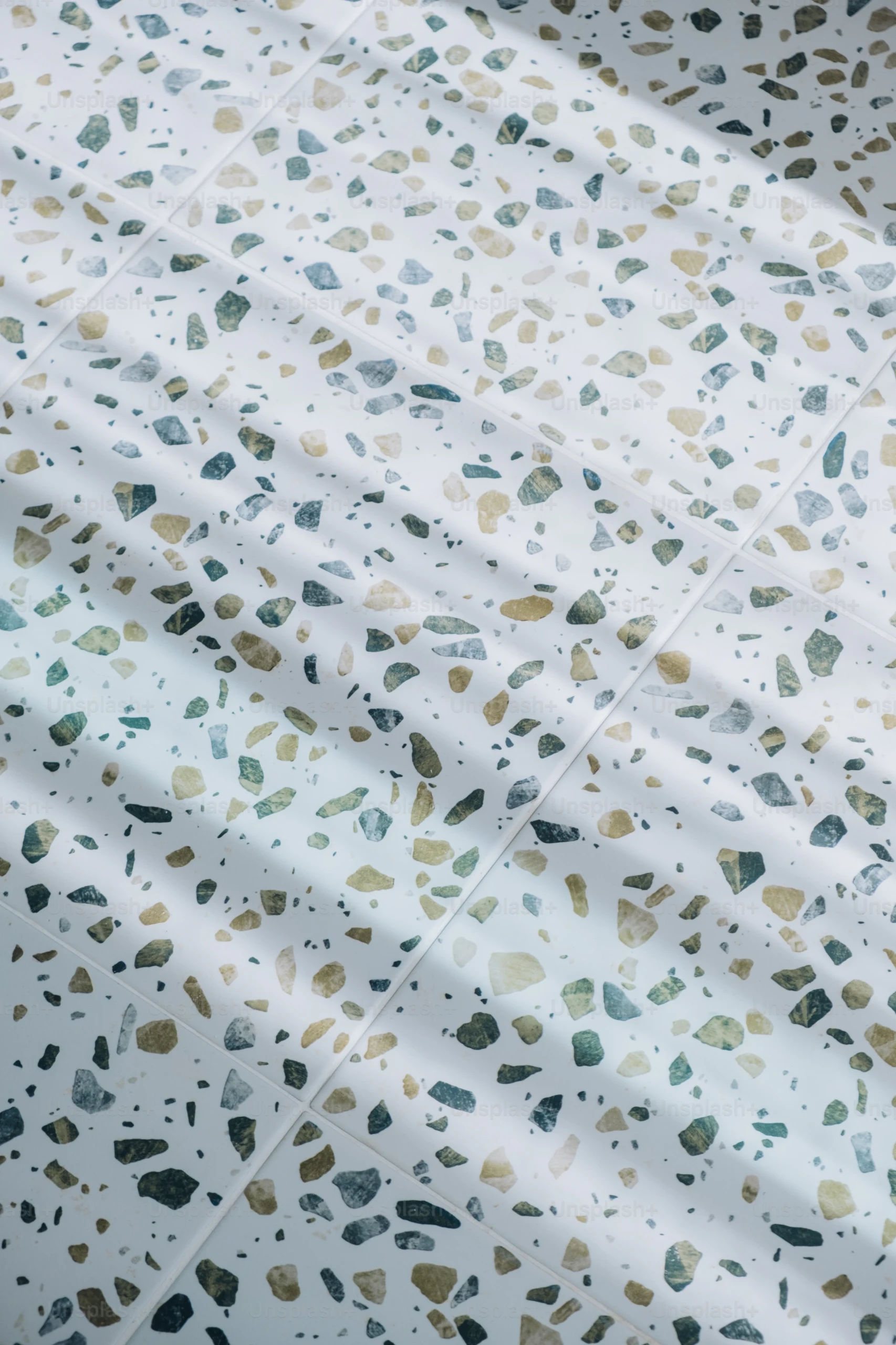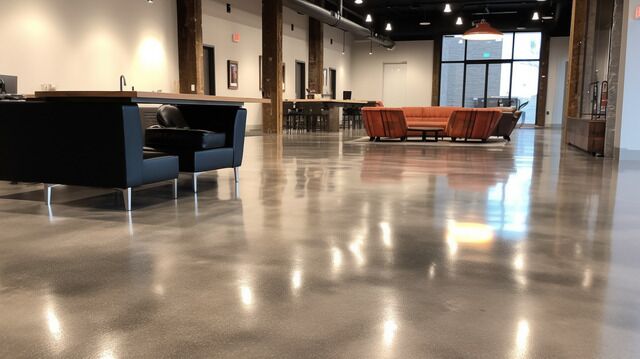The present world boasts a diverse world of flooring solutions. In these increasing numbers of options, epoxy flooring stands out for its durability. The use of epoxy flooring is exponentially increasing due to its versatility, resilience and aesthetic appeal. If you are impressed with this solution and wish to get it done for your workplace’s floor, it is first essential to know about the differences between commercial and industrial epoxy flooring.
To help you with your selection process, Duphill Technical Solutions LLC is here with this exclusive post. In this post, we take you on a journey through the differences between commercial and industrial epoxy floor coating based on several aspects.
Table of contents
- What is Industrial Epoxy Flooring?
- Benefits of Industrial Epoxy Flooring
- Common Uses for Industrial Epoxy Flooring
- What is Commercial Epoxy Flooring
- Benefits of Commercial Epoxy Flooring
- Common Uses for Commercial Epoxy Flooring
- Key Differences Between Industrial and Commercial Epoxy Flooring
- In a Nutshell
- Frequently Asked Question
What is Industrial Epoxy Flooring?
As clear by its name, Industrial Epoxy Flooring is a specialized flooring solution designed for heavy-duty environments such as factories, warehouses, and manufacturing facilities. It involves applying a durable epoxy resin based coating over concrete surfaces, creating a seamless, strong, and chemical-resistant finish. Industrial epoxy flooring is engineered to withstand high foot traffic, heavy machinery, and harsh conditions while offering features like slip resistance, easy maintenance, and customizable aesthetics to suit industrial needs.
Benefits of Industrial Epoxy Flooring
1. Durability
Industrial epoxy floor coating is highly durable. It is engineered to withstand high levels of foot traffic. Also, it can bear heavy loads of machinery. These floor coatings can withstand chemical spills, abrasions and extreme temperatures. Their robust surfaces are suitable to last long in harsh industrial environments.
2. Chemical Resistance
Another feature of these floor coatings is that they have high chemical resistance. They can deal with industrial oils, solvents and acids. Industrial epoxy coatings are formulated to be chemically resistant. As a result, they firmly protect the concrete substrate under them from chemical exposure.
3. Thickness
Thickness is another factor to consider when choosing between an industrial and commercial epoxy floor. The thickness of the industrial ones is generally more than that of the commercial ones. These floorings have several layers, including epoxy resin, primer coats and topcoats. These layers help enhance their durability and strength.
4. Slip Resistance
Industrial spaces need safe flooring solutions. Addressing this concern, the industrial epoxy floor coating is made to be slip-resistant. These floor coatings contain additives that enhance their slip resistance to reduce workplace hazards for industrial workers.
5. Customisation
Another feature of these coatings is that they allow customisation freedom. The aesthetics and functionality of these floorings are undoubtedly superior. The top flooring applicators allow customisation options for these floorings to meet your aesthetic preferences. You can get them customised in terms of textures, colours, and decorative additives.
Common Uses for Industrial Epoxy Flooring
Industrial epoxy flooring is designed to withstand heavy use in demanding environments. Common applications include:
1. Manufacturing Facilities
- Industrial epoxy flooring solutions provide durable and chemical-resistant surfaces ideal for heavy machinery and high-traffic areas.
- Epoxy flooring for industrial use minimizes wear and tear, extending the floor’s lifespan.
- The seamless design of industrial epoxy floor coatings ensures easy cleaning and maintenance.
2. Warehouses and Distribution Centers
- Industrial epoxy flooring offers high load-bearing capacity, making it suitable for warehouses and logistics hubs.
- Commercial epoxy floor coatings enhance safety by offering slip-resistant surfaces.
- The reflective properties of epoxy flooring reduce the need for additional lighting, lowering operational costs.
3. Commercial Kitchens and Food Processing Plants
- Commercial epoxy flooring is highly resistant to moisture, stains, and bacteria, meeting strict hygiene standards.
- These floors are easy to sanitize, making them a preferred choice for food-grade environments.
- Commercial epoxy flooring costs are offset by their long-term durability and compliance with safety regulations.
4. Automotive and Aerospace Facilities
- Industrial epoxy floor coatings provide resistance to oil spills, chemicals, and heavy equipment in automotive workshops.
- The smooth and strong surface of an industrial epoxy floor ensures efficient operations in aerospace settings.
- Customizable options include anti-static coatings, essential for sensitive equipment.
5. Retail and Showroom Spaces
- Commercial epoxy flooring enhances the aesthetic appeal of retail stores and showrooms.
- These floors are scratch-resistant and maintain a polished appearance despite high foot traffic.
- Cost-effective commercial epoxy flooring options make it a popular choice for businesses.
6. Healthcare Facilities
- Industrial epoxy flooring solutions are perfect for hospitals and clinics due to their non-porous and sterile properties.
- Epoxy flooring for industrial use in healthcare environments minimizes the risk of bacterial growth.
- Seamless industrial epoxy floors reduce the chances of dirt and contaminants getting trapped.
7. Educational Institutions
- Durable and low-maintenance epoxy flooring industrial applications are ideal for schools and universities.
- The cost of commercial epoxy flooring is justified by its longevity and ability to withstand student activity.
- Commercial epoxy floor coatings can be customized with school colors and designs.
8. Pharmaceutical and Cleanroom Environments
- Industrial epoxy flooring ensures contamination-free surfaces required for cleanrooms and pharmaceutical labs.
- Epoxy flooring industrial applications include anti-static and chemical-resistant properties.
- These floors meet stringent industry standards, ensuring safety and compliance.
What is Commercial Epoxy Flooring?
Another contender in this debate is the commercial epoxy floor. These floor coatings are formulated for places with moderate to light foot traffic. These are usually used for commercial places like hospitals, offices, retail stores, offices and schools.
Benefits of Commercial Epoxy Flooring
1. Versatility
Commercial epoxy coatings are quite versatile to suit a wide range of commercial applications. They offer a seamless surface that perfectly suits commercial spaces. These surfaces are easy to clean, making them ideal for places where hygiene and cleanliness are paramount.
2. Aesthetic Appeal
Another feature of these coatings is that they offer a professional and sleek appearance to commercial spaces. They easily complement various design schemes and interiors. These floorings are available in a wide range of colours, metallic pigments and decorative flakes to allow you to choose according to your specific aesthetic preferences.
3. Cost Effective
Commercial epoxy floor is an affordable option as compared to tiles and hardwood. These coatings offer excellent value for money. They are quite durable and have low maintenance requirements, making them a cost-effective flooring solution for commercial spaces.
4. Low Maintenance
Another feature of these flooring solutions is that they have low maintenance requirements. Their resistance to chemicals, stains and abrasions makes them easy to clean. They do not demand frequent repairs.
5. Fast Installation
Downtime due to flooring installations sounds bad for business operations. However, when you choose commercial epoxy floor coatings, you will not be facing this problem. The pro applicators install these floor coatings in the fastest way possible resulting in minimal downtime. So, you will not be required to disrupt your daily business activities for the installation of these solutions.
Common Uses for Commercial Epoxy Flooring
Commercial epoxy flooring enhances aesthetics and durability for customer-facing spaces. It is ideal for:
1. Warehouses and Distribution Centers
- Provides a seamless surface that withstands heavy foot and vehicle traffic.
- Resistant to spills, stains, and chemical exposure, ensuring easy maintenance and a safe working environment.
- Enhances visibility with reflective properties, improving safety and productivity.
2. Manufacturing Facilities
- Designed to handle the rigors of industrial operations, including heavy machinery and equipment.
- Can be customized with anti-slip surfaces to minimize accidents in high-traffic areas.
- Offers excellent chemical resistance to protect against spills from oils, solvents, and other hazardous substances.
3. Retail Stores and Showrooms
- Provides an attractive and modern finish that enhances the overall aesthetic appeal of the space.
- Available in various colors and designs, allowing businesses to match their branding and create a welcoming environment for customers.
- Easy to clean and maintain, helping to keep the showroom looking pristine.
4. Food Processing and Storage Areas
- Meets strict hygiene and safety standards, making it suitable for food-related industries.
- Epoxy flooring is non-porous, preventing the growth of bacteria and ensuring compliance with health regulations.
- Can withstand temperature fluctuations and exposure to cleaning agents commonly used in food processing.
5. Healthcare Facilities
- Provides a sterile and hygienic surface ideal for hospitals, clinics, and laboratories.
- Resistant to stains and easy to disinfect, ensuring a safe environment for patients and staff.
- Minimizes noise levels and offers comfort underfoot, which is beneficial in patient care areas.
6. Automotive Workshops and Garages
- Durable enough to withstand the wear and tear from heavy vehicles and equipment.
- Offers resistance to oil and chemical spills, ensuring a safe and clean workspace.
- Can be installed with specific patterns or colors to delineate work areas or improve organization.
Key Differences Between Industrial and Commercial Epoxy Flooring
Understanding the key differences between industrial and commercial epoxy flooring can help you choose the right solution tailored to your specific requirements.
| Aspect | Industrial Epoxy Flooring | Commercial Epoxy Flooring |
| Durability | Designed to withstand heavy machinery, forklifts, and high-impact activities. | Suitable for moderate foot traffic and light equipment use. |
| Thickness | Thicker layers (2-3mm or more) for added strength and durability. | Typically thinner layers (1-2mm), as extreme durability is less critical. |
| Chemical Resistance | High resistance to chemicals, oils, and solvents commonly found in industrial settings. | Moderate chemical resistance, adequate for cleaning agents and occasional spills. |
| Load Capacity | Handles extreme loads and heavy equipment without cracking or delaminating. | Supports lighter loads such as furniture, retail displays, and small equipment. |
| Aesthetic Options | Function-focused; limited design options with a focus on safety (e.g., anti-slip textures). | Wide range of colors, patterns, and finishes for enhanced aesthetics. |
| Cost | Higher initial cost due to thicker application and specialized formulations. | Generally lower cost due to thinner layers and less intensive requirements. |
| Installation Time | Longer installation time due to thicker application and curing process. | Faster installation time, suitable for businesses needing minimal downtime. |
| Maintenance | Low maintenance but requires periodic inspections for heavy wear and tear. | Low maintenance with occasional polishing or re-coating for maintaining appearance. |
| Safety Features | Often includes anti-slip additives and coatings for improved worker safety. | May include anti-slip properties, but focuses more on appearance and comfort for customers and employees. |
| Applications | Factories, warehouses, production plants, automotive workshops, and chemical plants. | Retail stores, restaurants, showrooms, office spaces, and healthcare facilities. |
Also Read: What Is Epoxy Flooring? And Types Of Epoxy Floor Coatings?
In a Nutshell
Choosing the right flooring for your workplace is a crucial task to ensure efficient operations. To choose among the right industrial epoxy flooring options, you will be required to consider various factors. These factors include the type of workplace- commercial or industrial. You must also consider traffic, usage, aesthetic preferences, budget, longevity and customisation freedom.
No matter what you choose between industrial and commercial epoxy floor coatings, Duphill Technical Solutions LLC is your reliable partner for these solutions. With our efficient procedure, we offer fast installations that result in minimal downtime. The high-quality solutions by our team will offer your workplace the most functional and aesthetic floors. So, contact us today for the best flooring solutions.
FAQs: Common Questions About Industrial vs Commercial Epoxy Flooring
Q1. Are there different types of epoxy flooring?
Ans: Yes, epoxy flooring comes in several types, such as self-leveling epoxy for seamless surfaces, epoxy mortar for heavy-duty areas, and epoxy flake for decorative purposes. Each type serves specific applications, ensuring tailored solutions for industrial and commercial spaces. These varieties enhance both functionality and aesthetics.
Q2. How strong is industrial epoxy?
Ans: Industrial epoxy is incredibly strong, capable of withstanding heavy machinery, intense foot traffic, and chemical exposure. It forms a thick, durable surface that resists wear, abrasions, and impacts. Its unmatched strength makes it an ideal choice for warehouses, manufacturing plants, and other demanding industrial environments.
Q3. What are the different types of industrial floor coatings?
Ans: Industrial floor coatings include epoxy, polyurethane, and MMA (methyl methacrylate). Epoxy provides durability and chemical resistance, polyurethane adds flexibility and UV resistance, and MMA offers quick curing for time-sensitive projects. Each coating is designed to cater to specific industrial flooring requirements, ensuring optimal performance.
Q4. How long does industrial epoxy last?
Ans: Industrial epoxy flooring can last between 10 and 20 years with proper maintenance. Its longevity depends on factors like the type of epoxy used, environmental conditions, and the level of wear and tear. Regular cleaning and occasional resealing can extend its lifespan significantly.
Q5. How long does commercial epoxy last?
Ans: Commercial epoxy flooring generally lasts 5-10 years, depending on usage and maintenance. High foot traffic areas may see reduced lifespans, but regular cleaning and avoiding harsh chemicals can prolong the surface. Its durability makes it a cost-effective flooring solution for many commercial spaces.
Q6. How do you clean commercial epoxy floors?
Ans: To clean commercial epoxy floors, sweep debris daily to prevent scratching, and mop with a mild, neutral-pH cleaner. Avoid abrasive cleaning tools or harsh chemicals that can dull the surface. Periodic deep cleaning with professional-grade equipment helps maintain the floor’s glossy, attractive appearance.
